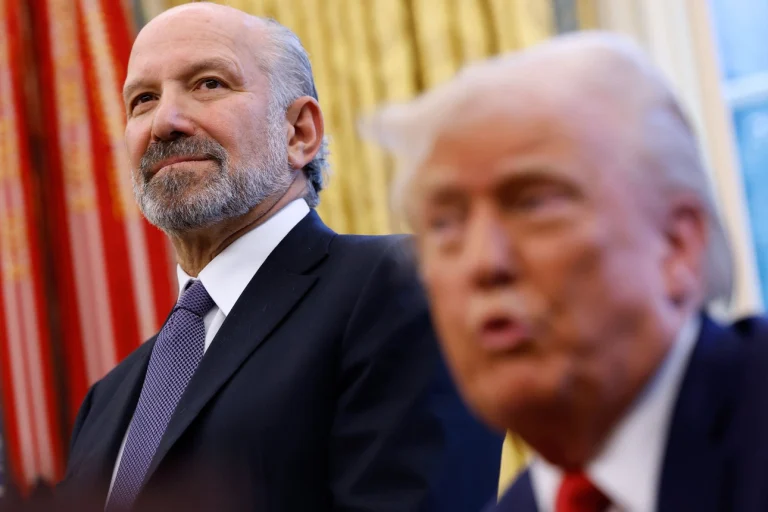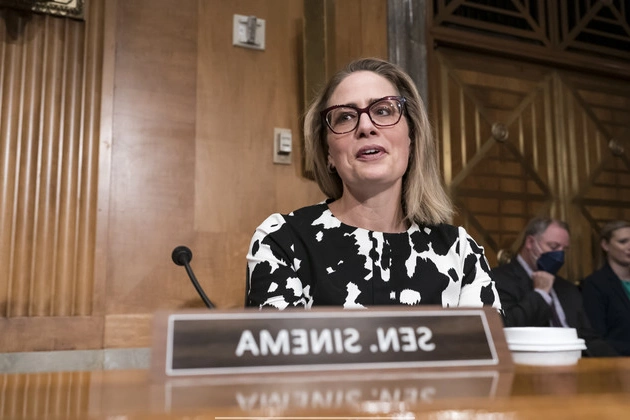
President-elect Donald Trump surprised Washington by picking someone to lead the IRS who has little experience with tax policy or large-scale organizational management.
His intended nominee, former Rep. Billy Long (R-Mo.), has also stirred discomfort for another reason: Long has been deeply involved in touting a tax break that’s been plagued by fraud.
Since leaving Congress last year, Long has made money by helping business owners retroactively claim a lucrative tax credit offered during the pandemic to help prevent layoffs.
“Virtually everyone qualifies,” Long, said on a podcast, bragging that he got some people more than $1 million from the Employee Retention Credit, and likening it to free money.
His pitch came the same month, September 2023, the IRS announced it was halting the processing of requests for the break, complaining it had been overwhelmed by potentially fraudulent or simply unqualified claims. So far, the credit has cost the government more than $230 billion.
If Long is confirmed to head the agency, he’ll be in a position to decide what to do with a mountain of pending claims, not to mention the thousands more that continue to arrive.
That promises to be a major issue in his nomination, with Democrats saying they want to know if he was part of the problem.
“This was a field where you had industrial-strength fraud, so there will be a significant number of questions for the nominee on this topic,” said Senate Finance Chair Ron Wyden (D-Ore.).
It could be awkward for Republicans too, who have similarly complained of fraud in the ERC program, which was meant to help struggling businesses keep workers on the job during the pandemic. Many have backed repealing the credit.
“It will be a question, obviously,” said Sen. James Lankford (R-Okla.), also a tax writer. “Just because he’s been involved in the Employee Retention Credit, it’s not necessarily nefarious.”
“There’s thousands of companies that have participated in that legally,” Lankford said.
Neither a Trump spokesperson nor Long responded to requests for comment, and neither did Commerce Terrace Consulting or Lifetime Advisors, two companies Long said he worked with. Lifetime Advisors says on its website that it stopped assisting new applicants with new ERC claims in November 2023.
In the podcast, entitled “Secret Tax Credit that Could Put Thousands Back in Your Pocket With Billy Long,” the former lawmaker said he and his partners didn’t push the credit for everyone. “If they don’t qualify, we do not tell them they do,” he said.
But Long also urged people to dismiss their accountants’ advice and come to him and his business associates to receive the break. It didn’t matter if someone’s business boomed during the pandemic, he said.
“You think funeral homes didn’t have a lot of business during Covid?” Long said in a video touting the provision. “I mean, people that had the best two years of their life, ever, on income, qualify.”
The battle against sketchy ERC claims has been one of the defining fights for the IRS under President Joe Biden. Created to help prevent layoffs when businesses went idle, the provision went awry thanks to a cottage industry of promoters that sprang up around the credit.
They pushed businesses to claim the provision, worth up to $26,000 per worker, in exchange for a fee.
It exploded in popularity even as the pandemic receded. Last year, there were 2.1 million requests for the credit, three times as many as in 2021, during the height of the pandemic.
Businesses can still take the ERC, through April 2025, by amending and refiling their old returns from the pandemic years. In June, the IRS said it had received 300,000 more requests this year for the credit.
It’s refundable, which means businesses can claim more than they paid in taxes, getting the difference in the form of a check from the IRS. Last year, the credit cost the Treasury $120 billion, about 40 percent of which was classified by the Congressional Budget Office as spending, not tax reductions.
Lawmakers in both parties agreed earlier this year to give the IRS expanded powers to fight bad claims, but the legislation fell apart amid disputes over other issues.
Current IRS Commissioner Danny Werfel, whom Long would replace even though he’s only midway through his term, has called it one of the most complex provisions the IRS has every administered. At one point Werfel estimated that as many as 90 percent of the claims before the agency had unacceptable levels of risk. But in Long’s telling, business owners would be crazy not to apply.
“It’s a no-brainer,” he said in the podcast, and accountants who urged caution didn’t know what they were talking about. “They didn’t stay on top of their game.”
One client told him, Long said, “Billy, I would not have gotten this money if I would have listened to my CPA,” referring to certified public accountants.
Business, Long said, “has been through the roof,” who joked about his aggressive efforts to tout the credit.
He always wore a hat promoting the break, he said. “I superglue it on at night so it doesn’t come off when I’m sleeping,” he said.
Wyden, whose committee has jurisdiction over the nomination — though it will be controlled Republicans next year — says he wants to know what Long did to root out bad claims.
“I want to hear about his experiences — I am interested in whether he took any action himself to isolate fraudsters,” he said.
On Wednesday, he fired off a letter to Commerce Terrace Consulting and Lifetime Advisors demanding to know how much Long earned, how many claims they filed and whether any of their clients ended up being audited, among other things.
Sen. Elizabeth Warren (D-Mass.), another tax writer, questioned Long’s willingness to enforce tax law. “His principal encounters with the tax world seem to be how to exploit loopholes,” she said.
At the same time, for all the attention on bad claims, there have been many legitimate ones too, as business owners have groused. An Arizona tax firm has sued the IRS over its processing moratorium, and complained the agency has exaggerated the amount of fraud.
And some lawmakers in both parties have eagerly touted the break and urged the IRS to speed processing of pending claims. In a letter this month to the IRS, Senate Majority Leader Chuck Schumer (D-N.Y.) and other Democrats complained that, as of June, there were still 1.4 million ERC requests before the agency.
Many Republicans are circumspect, saying they want to know more Long’s role.
“We have to look at it,” said Sen. Thom Tillis (R-N.C.), who has pushed to end the credit. “It all depends on how he did it.”
“This is why we have a nomination process.”
Incoming Finance Chair Mike Crapo (R-Idaho) said he is withholding judgment. “I just don’t know the facts so I’m not going to give an opinion on what he did,” Crapo said.
“I didn’t hear the podcast.”















